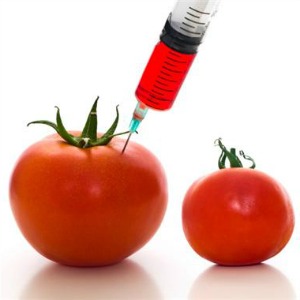Top of the most contentious issues confronting the 21st century is the suitability of genetically modified food (GM food) as an effective means to improve food supply and combat hunger especially in Africa. With research confirming global human population increasing annually by 1.2%, it has become imperative to once more push to the forefront the ever debatable question if food produced from organism that have had changes introduced into their DNA through genetic engineering still retains the answer to secure food supply.
Sales of commercial GM food commenced in 1994 when an American multinational agrochemical and agricultural biotechnology company Calgene (now part of Monsanto) marketed tomatoes with delayed ripening abilities. Several African countries have repeatedly rejected GM food. Although the controversy on GMOs still rages across the Atlantic with advanced nations in America and Europe still debating on policies and legal frameworks on how to market products derived from this technology. The dispute pegs consumers, biotechnological companies, farmers, government regulators, NGOs and scientists for and against the subject. The major area of controversy in America and Europe is whether GM foods should be labelled, the role of regulators, the truthfulness in scientific findings and publications, the effects of GM crops on health and environment, the impact of GM crops for farmers, effects on pesticide resistance, and the role of GM crops in feeding the world. In 2002, Zambia which is suffering severe food shortages had earlier halted food aids shipments from the United States citing the fear of the unknown.
This is irrespective of the fact that the Zambian government had earlier declared some parts of the country as disaster areas as nearly three million people were suffering from hunger due to severe drought. The United Nations World Food Program (WFP) estimated that Zambia needed about US$61 million in food aids to avert impending crises. Also neighboring Zimbabwe and Mozambique have also rejected the US grain offer citing possible adverse effects on humans.
In between crises and fatalities, embolden refusals from governments of poor hungry nations has set analyst and policy makers thinking as to logical reasons why people who may inevitably die either way from malnutrition and hunger will prefer to die from acute lack rather than die in unwanted abundance.
Nigeria not to be left behind toed the African rejection trend, in March 2005 a Nigerian Consumer body under the umbrella of All-Nigerian Consumer Movements Union rejected GMOs and had called on the Federal Government to change its position on “these dangerous products”. The union admitted that the GM technology has the capacity to increase food production and also improve the nutritional quality of food, but its dominant practitioners are not recorded to use it.
The union strongly condemned the Memorandum of Understanding (MOU) which was signed between Nigeria and the United States Agency for International Development to jointly promote biotechnology and genetically modified products in Nigeria. But Nigeria which does not have a policy on GMO imports has already drafted a biosafety bill which allows the use of GMO technology, but the National Assembly is yet to pass the bill into law. This bill is touted to hold the key to agricultural transformation in the country as it will increase and improve food production including the production of tomatoes, cotton, sorghum, maize and cowpeas by farmers. The president has still refused to assent his signature to the biosafety bill in this current seventh assembly despite failing to do same in the last sixth assembly. But the legislators are quite optimistic that Mr. President will do so as he doesn’t have any reason not to approve a bill that is capable of transforming the agricultural landscape of the country for the better. African countries which have policies on GMO imports and have already banned the use of GMOs includes; Lesotho, Zambia, Kenya, Angola and Ethiopia.
Therefore as the nation still awaits this seemingly unforthcoming bill to be passed intolaw, the need to renew the sensitization of GMOs becomes imperative as the reasons which the fears stems from must be effectively and promptly addressed. A local proverb postulates that a mother hen can’t gather her chicks under her wings if it hasn’t seen a prey kite hovering over the skies. The leading private agrochemical and biotechnology multinationals may project the technology as harmless, but the basis of their incorporation is to maximize profit hence they must come forth clean before the hesitant public.
Diana-Abasi Alphonsus Udoh
A public affairs commentator writes from Copenhagen.

